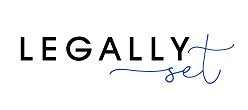Now that life is beginning to resume some sort of normality, people are beginning to catch up on all the events that they missed out on last year. If you are planning an event or have an event services company of some sort, you may have heard the words “Covid-19 liability waiver”. In these confusing times with all these new Covid-19 rules, you may not know exactly what that is or if your company should use them.
Let’s review why this waiver could be a great idea.
What is the liability waiver?
In the most general of terms, a liability waiver is a document that you have your client sign saying if they are hurt or injured while participating in a certain activity/event, your company and you are not liable for any injuries or problems that occur.
Some people argue that these waivers are not completely effective as they do not protect against everything. Some others argue that these waivers are hard to enforce and even harder to prove liability. Then there are those who argue about whether or not it’s even necessary?
Is your company liable for exposure to Covid-19 at an event?
The answer is maybe. Covid-19 is unchartered territory and some lawyers and courts are still deciding on who is actually liable for exposure to this new virus. However, there are currently numerous lawsuits happening regarding exposure to Covid-19 at events.
This is because people can say your company or event was negligent about enforcing social distancing or masking requirements. They could also come back and say that the event was the source of their exposure (despite the fact they went to several other places that week so who could know). They could also say they were harmed in some way at the event.
These accusations seem far-fetched, but they do unfortunately happen and can leave your business exposed.
How can I avoid being negligent in regards to Covid-19?
Everyone expects people to follow different guidelines and some are stricter in their personal lives than others. Your best option is to follow all current guidelines laid out by the CDC and your local health authorities.
Remember that your current business insurance probably does not cover Covid-19, as they have not been updated to cover this. This means you should be taking additional steps to protect yourself and your company.
A well-written waiver that is signed by the person hosting the event can give evidence that you did inform people about the possible risks and their signature proves they were told about it and decided to go ahead with the event anyway.
At the very least, getting a Covid-19 waiver from your clients is the responsible thing to do, and it shows you care about your clients and their health and safety.
The best ways to avoid possible lawsuits
Again, this is a bit complicated in Covid-19 times. Accidentally exposing someone to the virus could maybe fall under ordinary negligence (e.g. not taking reasonable precautions) which is the type of negligence a liability waiver could typically cover. HOWEVER, you knowingly exposing someone to the virus is a whole different ball game. For instance, you test positive for the virus and STILL attend the event knowing people would be exposed. Now, that’s willful misconduct and reckless AF. A liability waiver would not protect you in instances of wilful misconduct or gross negligence. Let me say that again: A liability waiver would not protect you in instances of wilful misconduct or gross negligence.
In general, enforce the same rules that your local community requires and enforces: masks, social distancing, all those terms you have been hearing nonstop for the past year. And of course, if you get word of an employee or attendee having Covid-19, alert the client right away and seek advice on what to do next.
Are they enforceable?
As I mentioned earlier, it depends on your state and it depends on the nature of the situation. All parts of waivers usually have terms that make them unenforceable. This could include gross negligence on your part, contract of adhesion (unfair bargaining power by one party), or any term that goes against public policy.
Remember that the waiver and enforcement depend on the state you live in. Some states may not even accept liability waivers. It is always a great idea to research exactly what your state laws are and confirm your waiver is drafted accordingly.
Who signs the waiver?
First, definitely the client. Have the waiver signed by them first of all. Next, if you want the waiver to count towards every guest, then it will need to be signed by every single guest so it’s up to you to decide if that is feasible and how that would work if you chose to do it.
Long Story Short
A Covid-19 waiver can give your business additional protection but it won’t protect you from gross negligence (extreme disregard or indifference for the safety of others) or willful misconduct. So the truth is what’s there to lose by having it as extra documented protection when dealing with a client’s event? Make sure you check what is accepted in your state and confirm your waiver ticks the boxes. You can shop our Covid-19 Liability Waiver for Service Providers or the Covid-Liability Waiver for Venues/Premises as a start!


